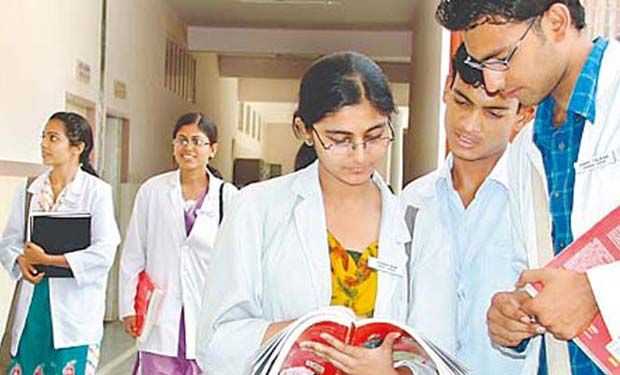On 29th December, 2016, Ministry of Health & Family Welfare (MoHFW) posted on its website the draft of the proposed amendments to Indian Medical Council Act. These proposed amendments call for setting up a National Exit Examination for all MBBS students. This exam is intended to serve three purposes:-
- Currently, students from different universities are evaluated in accordance with their own university standards & rules. So a MBBS graduate from one university may not essentially be as competent as that from another. Person with 70% in final MBBS exam from one university may not be as competent as person with 60% from another university. One of the main objective of this bill is STANDARDIZATION & GRADATION OF STUDENTS ON MERIT at the national level.
- As per the existing rules, admission to Post-Graduate medical courses is done on the basis of National Entrance-cum-Eligibility Test (NEET) conducted at the national level. NEXT intends to replace NEET & henceforth admission to PG Medical courses will be done on the basis of merit in NEXT.
- Also this exam will serve as a recruiting exam for Central Health Service.
The draft amendment bill calls for up to 50% reservation for government medical officers in PG Courses. According to the proposed bill, those candidates who opt for government medical services after clearing NEXT & serve for 3 years, they get 50% quota in PG courses in government medical colleges. Also after completion of their PG course, they may additionally be required to serve in rural/difficult area for a further period of 3 years.
The objective of a standardized evaluation of medical students from different universities is much called for. This assessment of students will indirectly serve as a quality indicator for their respective universities. Government aims to incentivise NEXT by providing national permit to practice, for those students who clear NEXT. Also a nationwide entrance exam is an effective way of evaluating students & curbing rampant corruption in admissions.
If we closely examine the years, cost & perseverance put in by medical students then this proposed exam is an outright mockery of those who opt for becoming a doctor. Let’s have a brief study about the present medical system in our country. We have a total of 63,835 MBBS seats in our country (1). Constitutional reservations leave only 50% of them for open category students. Of these total MBBS seats, nearly 50% are private seats, whose fees only blessed souls can afford. A medical student completes MBBS along with compulsory-internship at the age of 23. In the present era, MBBS practice is under severe constrain & opting for PG is almost a compulsion for every medical student. So at the age of 24, he/she gets into PG & completes it at the age of 27. And most importantly, aforementioned is based on an assumption that after MBBS, the student gets into PG at his 1st attempt, which is reasonably difficult to get into in 1st attempt. Also a medical student from government medical college is expected to serve in rural areas.
Now let’s examine the scenario if NEXT becomes a reality. NEXT provides for 50% reservations for medical officers in government service. So the probability of an open category MBBS doctor getting into PG directly after MBBS becomes a rarity. An average MBBS doctor, after clearing NEXT will be required to serve in government medical services for 3 years after MBBS. After completion of government services at the age of 27, he/she stands a chance of getting into PG using the proposed 50% quota system. After completing specialization at the age of 30, he/she may still be required to serve in rural/difficult areas for 3 years additionally. So at the age of 33, finally we have a PG medical doctor who is free from the whims & fancies of the government. In my knowledge, I am not aware of any course where conventionally a person graduates at the age of 33. This proposed NEXT exam, has totally neglected the financial & personal life aspect of a doctor. A PG graduate howsoever brilliant academically, needs at least 5-7 years to establish his/her practice. Parents put in a lion’s share of their life savings to make their son/daughter a doctor so isn’t it fair on their part to expect a stable income from their wards?
We do need doctors in rural areas. I understand the fact that government needs to incentivise rural postings.
NEXT is intended as an incentive for rural posting. But the proposed format of NEXT is almost like arm-twisting a MBBS doctor to opt for rural posting. A doctor is just like any other graduate who has personal dreams & aspirations.
In my considerate opinion, correct incentive for rural postings would be monetary benefit or reduction in rural posting from 3 to 1 year. Other set of incentives can be providing cheaper loans to set up hospital/clinic for those who opt for rural postings. And main aversion to rural postings is lack of basic infrastructure & poor quality of standard of life. A doctor will be more than happy to serve in rural areas if he/she gets reasonable quality of life & adequate monetary support in lieu of his services.
Medical education & profession can’t be subjected to government’s whims & fancies. Doctors form the national talent pool of the country. We are more than ready to serve national interests but at the same time reasonability is an important criteria. I believe that quality of medical education & profession will be much better if non-medico bureaucrats experienced medical students’ life only for one week.
Source :(1)http://www.mciindia.org/InformationDesk/ForStudents/ListofCollegesTeachingMBBS.aspx
Bhaumik J. Kamdar is a Final year MBBS student at K. J. Somaiya Medical College & Research Centre, Mumbai-22




























